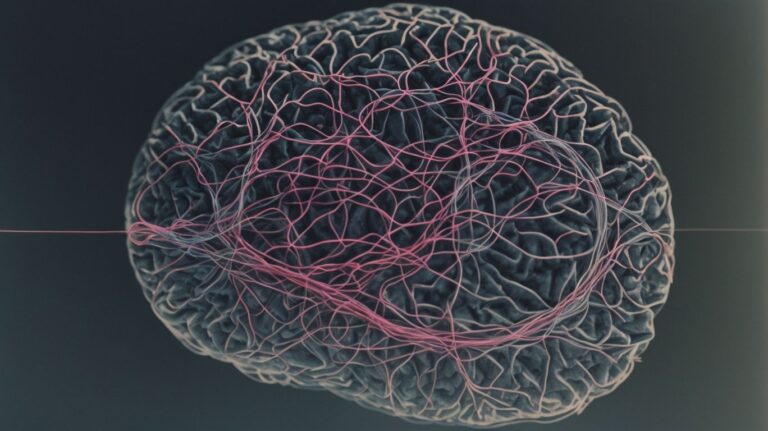Have you ever found yourself saying or doing something to counteract a previous action or thought? This phenomenon is known as undoing in psychology, and it has a rich history rooted in the work of renowned figures such as Sigmund Freud, Anna Freud, and Melanie Klein.
In this article, we will explore the concept of undoing, how it operates in the mind, and its real-life implications. By understanding undoing, we can gain valuable insights into our own behavior, improve self-awareness, and enhance our mental well-being. So, let’s dive in and unravel the fascinating world of undoing in psychology.
Contents
- 1 Key Takeaways:
- 2 What Is Undoing in Psychology?
- 3 The History of Undoing in Psychology
- 4 How Does Undoing Work in the Mind?
- 5 Examples of Undoing in Everyday Life
- 6 The Benefits of Understanding Undoing
- 7 Frequently Asked Questions
- 7.1 What is the concept of undoing in psychology?
- 7.2 How does the concept of undoing relate to mental health?
- 7.3 What are some examples of undoing in psychology?
- 7.4 Can undoing be a conscious process?
- 7.5 How can understanding the concept of undoing help improve relationships?
- 7.6 Is undoing a permanent solution?
Key Takeaways:
- Undoing is a psychological concept that involves the process of consciously or unconsciously trying to reverse or negate a past action or thought.
- The concept of undoing has roots in the work of Sigmund Freud, Anna Freud, and Melanie Klein, and is closely related to the unconscious mind, repression, and defense mechanisms.
- Understanding undoing can lead to improved self-awareness, emotional regulation, and mental health outcomes, making it a valuable concept in relationships, therapy, and self-improvement.
What Is Undoing in Psychology?
Undoing in psychology refers to a defense mechanism identified by Sigmund Freud, which involves the symbolic action of undoing a previous behavior or thought to alleviate guilt or anxiety.
It is commonly associated with obsessional neurosis and compulsive disorders.
The individual may perform certain actions or rituals as a way of reversing or atoning for perceived wrongdoings or immoral thoughts. This process provides a sense of relief from the discomfort caused by the initial conflict.
Freud highlighted undoing as one of the defense mechanisms used by the ego to manage internal conflict, alongside repression, rationalization, and displacement.
The History of Undoing in Psychology
The history of undoing in psychology traces back to the pioneering work of Sigmund Freud, who identified and analyzed undoing as a significant psychological mechanism associated with guilt and anxiety.
The Work of Sigmund Freud
Sigmund Freud’s work in psychology delved into the complexities of human behavior, exploring concepts such as guilt, anxiety, subconscious symbolism, and the role of apology in undoing scenarios.
Freud’s influential contributions also focused on the deep-seated connections between guilt and the subconscious mind, emphasizing the impact of unresolved guilt on an individual’s mental well-being.
He shed light on the intricate interplay between guilt, anxiety, and the intricate symbolic nature of human behaviors. Notably, Freud’s insights into the mechanism of apology and undoing unveiled the intricate workings of the human psyche, shedding light on the profound significance of these processes in psychological phenomena.
The Contributions of Anna Freud
Anna Freud, a prominent figure in psychology and psychiatry, made notable contributions to the understanding of coping mechanisms, Freudian defense mechanisms, and the role of undoing in ritualistic behaviors.
Her exploration of coping mechanisms delved into the ways individuals manage stress and navigate challenging situations.
Freud’s elucidation of Freudian defense mechanisms, including repression, projection, and sublimation, provided profound insights into human behavior and emotional regulation. She also shed light on the manifestation of undoing in ritualistic behaviors, demonstrating how individuals unconsciously attempt to counteract guilt or anxiety through repetitive and symbolic actions.
The Influence of Melanie Klein
The influence of Melanie Klein in psychology is evident in her exploration of counterfactual thinking, cognitive dissonance, and the subconscious processes underlying symbolic actions in undoing scenarios.
Her pioneering work has revealed the profound impact of early childhood experiences on the formation of unconscious symbolic representations and the subsequent psychological development.
Klein’s concepts elucidate the complexity of human psyche, offering crucial insights into the dynamics of cognitive dissonance and the intricate interplay of conscious and unconscious motivations.
Her emphasis on undoing scenarios has influenced the understanding of defense mechanisms, revealing how individuals rationalize actions that conflict with their beliefs or morality.
This has significantly enriched psychological theories, shedding light on the intricate mechanisms employed by the mind to manage conflicting emotions and thoughts.
How Does Undoing Work in the Mind?
Undoing operates within the mind as a defense mechanism, as identified by Freud, to address cognitive dissonance and subconscious conflicts related to obsessional neurosis, exemplified in the behavior of Lady Macbeth.
This psychological mechanism involves a process of mentally reversing or attempting to ‘undo’ a thought, feeling, or action that creates internal discomfort. It functions as a way to alleviate the distress caused by conflicting beliefs or values.
When an individual experiences guilt or anxiety due to their actions, they may engage in undoing by performing excessive acts of kindness to counterbalance perceived wrongdoings.
Freud’s theory of undoing delves into the complexities of the human psyche, shedding light on how individuals strive to mitigate inner turmoil.
As a part of the larger spectrum of defense mechanisms, undoing plays a pivotal role in maintaining psychological well-being by resolving cognitive dissonance and addressing deep-seated conflicts at the subconscious level.
The Role of the Unconscious Mind
The unconscious mind plays a pivotal role in the dynamics of undoing, as outlined in Freud’s analysis of obsessional neurosis, guilt, and anxiety within the realm of psychology.
Freud’s conceptualization of the unconscious mind has significantly contributed to our understanding of how individuals cope with repressed desires and unresolved conflicts.
According to his theory, undoing serves as a defense mechanism, allowing individuals to alleviate their guilt and anxiety by performing acts aimed at ‘undoing’ or neutralizing their negative thoughts or actions.
In essence, the unconscious mind operates as a reservoir for suppressed emotions and impulses, influencing behavior and mental processes without the individual’s conscious awareness.
The Process of Repression
The process of repression is a fundamental component of undoing, as elucidated by Freud, in the context of obsessional neurosis, defense mechanisms, and the coping mechanisms exemplified in the behavior of Lady Macbeth.
Repression, as per Freud’s analysis, involves the unconscious blocking of disturbing or unresolved thoughts, impulses, or memories.
This mechanism serves as a crucial aspect of undoing, as it enables individuals to distance themselves from distressing experiences or desires, often manifesting in behaviors contradictory to the suppressed thoughts.
Freud’s depiction of obsessional neurosis reveals how repressed thoughts can resurface in symbolic or disguised forms, leading to behavioral patterns characterized by repetitive actions or unresolved conflicts.
Lady Macbeth’s descent into guilt-ridden madness after orchestrating Duncan’s murder illustrates the complex interplay between repression and undoing.
Her attempts to wash away the figurative bloodstains reflect her subconscious endeavor to undo the consequences of her actions, revealing the intricate dynamics of repression and its impact on psychological unraveling.
The Role of Defense Mechanisms
Defense mechanisms, as conceptualized by Freud, shape the role of undoing in addressing cognitive dissonance and symbolic actions, particularly evident in the context of obsessional neurosis and the behavior of Lady Macbeth.
Freud’s exploration of defense mechanisms, such as repression, projection, and reaction formation, offers a comprehensive understanding of how individuals protect their psyche from threatening thoughts and emotions.
In the case of undoing, these defense mechanisms play a vital role in managing cognitive dissonance by transforming unacceptable impulses into their opposites.
This process is evident not only in pathological conditions like obsessional neurosis but also in the symbolic gestures and rituals depicted in literary works like Macbeth, where Lady Macbeth’s compulsive handwashing reflects her desperate attempt to undo the guilt associated with the murders.
Examples of Undoing in Everyday Life
Undoing manifests in various examples in everyday life, including the ritualistic behaviors of Lady Macbeth, symbolic actions in reaction formation, and the cognitive dynamics of counterfactual thinking.
Lady Macbeth’s continual hand-washing in Shakespeare’s play ‘Macbeth’ exemplifies the undoing mechanism, symbolizing her attempt to rid herself of the metaphorical bloodstains of guilt.
Similarly, individuals may engage in symbolic actions, such as volunteering for charitable causes, as a way to counteract feelings of selfishness or materialism.
Counterfactual thinking can lead to the mental undoing of events. This is evident when individuals ponder ‘what-ifs’ after making a decision, resulting in a sense of undoing or remorse for the alternative actions not taken.
Undoing in Relationships
The concept of undoing is evident in relationships through ritualistic behaviors, counterfactual thinking, and the role of apology in addressing guilt and interpersonal dynamics.
Within relationships, undoing often manifests through repetitive actions or rituals intended to symbolize remorse or make amends. These behaviors can serve as a tangible representation of seeking forgiveness or rectifying past wrongs.
The propensity for counterfactual thinking, where individuals dwell on what might have been different, further accentuates the prominence of undoing in relationship dynamics.
Apology, as a mechanism, plays a pivotal role in acknowledging one’s responsibility and expressing remorse, thereby addressing underlying guilt within relationships.
It serves as a significant step in navigating the complexities of interpersonal dynamics, fostering understanding, and rebuilding trust.
Undoing in Therapy
In therapeutic contexts, the exploration of undoing as a psychological mechanism, exemplified in the behavior of Lady Macbeth, aligns with the insights of Roy Baumeister and the subconscious symbolism underlying such actions.
As observed in Shakespeare’s play, Lady Macbeth’s repeated hand-washing can be interpreted as an act of undoing, a manifestation of guilt and an attempt to rid herself of the symbolic bloodstains of her nefarious actions.
Roy Baumeister’s study of self-regulation offers valuable insights into the impulsivity inherent in undoing, as individuals seek to remove the discomfort of unresolved actions or undesirable thoughts.
This behavior reflects an innate desire for psychological balance and restoration of a sense of moral purity, deeply rooted in the human psyche.
Undoing in Self-Improvement
Self-improvement endeavors often involve the exploration of undoing behaviors, drawing from Freud’s insights into compulsive disorders, the cleansing symbolism in theology, and the alleviation of guilt and anxiety.
Undoing behaviors, as examined by Freud, are rooted in the human desire to counteract distressing thoughts or actions through repetitive or ritualistic behaviors, an idea that sheds light on mechanisms of compulsion.
In theology, cleansing rituals symbolize the purging of sins and achieving spiritual purity, reflecting the human inclination for renewal and absolution.
Addressing guilt and anxiety often involves acknowledging past actions and seeking ways to undo their negative impacts, emphasizing the significance of self-forgiveness and behavioral adjustments.
The Benefits of Understanding Undoing
Understanding the concept of undoing in psychology offers several significant benefits, including improved self-awareness, emotional regulation, and mental health, as highlighted in the contexts of obsessional neurosis and the behavior of Lady Macbeth.
Through analyzing undoing in psychology, individuals can gain insights into the ways in which they rationalize and mitigate guilt, thereby fostering a deeper understanding of their own behaviors and motivations.
This enhanced self-awareness can lead to improved decision-making and interpersonal relationships, as individuals become more attuned to their own emotional responses and triggers.
The ability to recognize and engage in undoing mechanisms can also contribute to better emotional regulation, allowing individuals to address and manage conflicting or distressing emotions more effectively. This can reduce the likelihood of maladaptive coping strategies and promote overall mental well-being.
In the context of obsessional neurosis, the study of undoing serves as a valuable tool to unravel the complex mechanisms underlying compulsive behaviors and intrusive thoughts.
Examining the behavior of Lady Macbeth through the lens of undoing offers a powerful illustration of how guilt and remorse can manifest in layers of psychological defense mechanisms.
Improved Self-Awareness
The understanding of undoing contributes to enhanced self-awareness, as individuals recognize the symbolism and subconscious dynamics underlying their behaviors, aligning with Freud’s insights into anxiety within the realm of psychology.
By looking into the concept of undoing, individuals gain insight into the powerful role of symbolism in their thoughts and actions. Freud’s psychological framework underscores the significance of subconscious influences, revealing how past experiences and repressed emotions manifest in behavior.
Understanding undoing prompts introspection, illuminating patterns of behavior that may have previously seemed inexplicable.
This awareness fosters a deeper understanding of oneself and others, potentially reducing anxiety by providing a framework for deciphering the underlying causes of internal conflict and turmoil.
Recognizing the constructive impacts of undoing opens avenues for self-reflection and personal growth, aligning with Freud’s emphasis on the unconscious mind’s role in shaping human behavior and emotions.
Improved Emotional Regulation
The comprehension of undoing facilitates improved emotional regulation, particularly in addressing cognitive dissonance, coping with guilt, and managing the complexities of obsessional neurosis, as elucidated by Freud.
Understanding undoing, which involves the psychological process of mentally reversing or neutralizing an unacceptable thought or action, plays a vital role in fostering emotional stability.
This can be attributed to its capacity to resolve cognitive dissonance, a state of psychological discomfort arising from conflicting beliefs or behaviors.
In the realm of guilt coping strategies, the concept of undoing holds significance as it allows individuals to mitigate the emotional consequences of their actions through symbolic or ritualistic gestures of atonement.
When exploring obsessional neurosis, the comprehension of undoing provides a framework for managing obsessive thoughts and compulsive behaviors, offering a pathway to alleviate distress and restore equilibrium.
Improved Mental Health
The understanding of undoing contributes to improved mental health by addressing compulsive disorders, alleviating anxiety, and drawing from the cleansing symbolism in theology within the realm of psychology as conceptualized by Freud.
Understanding undoing in the context of mental health involves recognizing its role in the management of compulsive behaviors. By addressing the underlying psychological mechanisms, individuals can experience relief from the distress associated with these conditions.
The concept of undoing offers a framework for alleviating anxiety by promoting a sense of control and agency over one’s thoughts and actions.
The symbolism of cleansing embedded in theology holds significance within psychology, allowing individuals to engage in the process of emotional and spiritual purification. This offers a pathway for resolving inner conflicts and promoting psychological well-being.
Freud’s conceptualization underscores the profound impact of undoing on mental health and the interconnectedness of psychological processes with symbolic representations in theology.
Frequently Asked Questions
What is the concept of undoing in psychology?
The concept of undoing in psychology refers to the human ability to consciously or unconsciously reverse or undo negative or harmful thoughts, emotions, or behaviors in order to mitigate their effects and promote psychological well-being.
How does the concept of undoing relate to mental health?
The concept of undoing is closely related to mental health as it highlights the importance of self-awareness and self-regulation in managing one’s emotions and behavior. By recognizing and undoing negative patterns, individuals can improve their mental and emotional well-being.
What are some examples of undoing in psychology?
Examples of undoing in psychology include engaging in behaviors that counteract negative thoughts or emotions, such as practicing relaxation techniques to reduce anxiety, or apologizing and making amends for hurtful actions.
Can undoing be a conscious process?
Yes, undoing can be a deliberate and conscious process where individuals actively recognize and correct negative thoughts or behaviors in order to promote their well-being. This may involve seeking therapy or practicing self-reflection and self-care techniques.
How can understanding the concept of undoing help improve relationships?
By understanding the concept of undoing, individuals can become more aware of their own emotions and behaviors and how they may impact their relationships. This can help them make conscious efforts to undo negative patterns and improve communication and conflict resolution within their relationships.
Is undoing a permanent solution?
Undoing can be a helpful tool for managing negative thoughts and behaviors, but it may not necessarily be a permanent solution. It is important for individuals to also address underlying issues and develop coping mechanisms to prevent negative patterns from resurfacing in the future.






